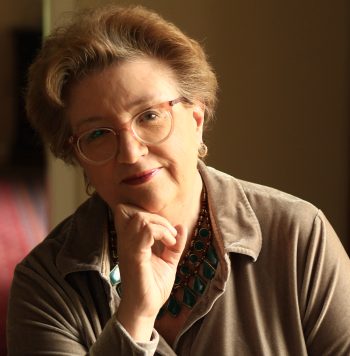
About Libby Sternberg:
LIBBY STERNBERG is an Edgar Award finalist, a Launchpad Prose Top 50 finalist, and a BookLife quarter finalist twice, including once for DAISY. She writes historical fiction, contemporary women’s fiction, young adult mysteries, and more, releasing her humorous works under the name Libby Malin, and her romantic comedy Fire Me was bought for film. Her novel Sloane Hall, a retelling of Jane Eyre, was one of only 14 books highlighted in the Huffington Post on the 200th anniversary of Charlotte Brontë’s birth. She holds both bachelor’s and master’s degrees from the Peabody Conservatory of Music and sang with various opera companies before turning to writing. Born and raised in Baltimore, Maryland, she lived in Vermont for many years and now makes her home in Lancaster, Pennsylvania.
What inspires you to write?
I’ve loved writing from an early age, but it took me quite a long time to accept that I wanted to try to do it seriously. That’s a huge investment of time, finishing a manuscript, determining who to send it to. Once I got past those hurdles, I realized I was a writer, and nothing could stop me from writing, even multiple rejections couldn’t. I had stories to tell, and I had to tell them.
What authors do you read when you aren’t writing?
Because I also am a freelance editor, I spend most of my time immersed in reading. So when I read for pleasure I split my time between commercial and “upmarket” fiction and some nonfiction that intrigues me. Nonfiction I’ve enjoyed lately includes Wendy Moore’s No Man’s Land (about a woman-run hospital in World War I), Volcker Ullrich’s Eight Days in May (about the eight days before Germany surrendered in World War II) and Charles Castle’s The Duchess Who Dared (a juicy biography of the Duchess of Carlisle, the subject of A Very British Scandal). As for fiction, I’ve become a fan of Harlan Coben mysteries and am devouring them one after the other. In women’s fiction, I love Kristan Higgins’s sharp, funny, but soulful stories. And an absolute favorite author of mine is Louis Bayard, who writes wonderful historical fiction. His novel, The Pale Blue Eye (a mystery involving a young Edgar Allan Poe at West Point), is being made into a Netflix film, and I can’t wait to see it. I’d be remiss if I didn’t say, though, that my favorite novel of the past few decades was Marilynne Robinson’s Gilead. I read it multiple times, including when I was undergoing chemo.
Tell us about your writing process.
I usually start with a character, someone who presents themselves to me in my mind, and I want to explore what happens to them if this and that occurs. I’m mostly a “pantser,” writing as the tale comes to me, but I do have plotting moments where I will jot down notes about where a character is headed and how he or she gets there. Sometimes I write climactic scenes early, just so I’m not so impatient to get there. I can always adjust them.
For Fiction Writers: Do you listen (or talk to) to your characters?
Absolutely! Whenever I’ve had writer’s block, I talk to my characters. I interview them. I ask them what they’re thinking. Once they tell me, the block is gone.
What advice would you give other writers?
Be persistent, find a good critique partner, and learn as much as you can about the publishing business. It surprised me how much time I had to spend dealing with the publishing business, almost equal to what I spend writing.
How did you decide how to publish your books?
I began writing seriously before self-publishing through platforms like Amazon was an option. So I dove into traditional publishing, doing the agent hunt, going through the soul-crushing submission process. And I’m fortunate to have had some success there, including a film deal from one of my novels. I’ve come to realize, though, that some of the stories I want to tell don’t fit neatly into the niches most editors are looking to fill, so I’m immensely grateful for the opportunities the new self-publishing world offers. An author friend of mine put it this way when I was pondering whether to self publish or go the “trad” publishing route with a book: Do you want to memorialize the story or sell it widely? If your primary interest is the former, then self-publishing is a perfectly respectable route. If your goal is the latter, then traditional publishing can be the better route.
What do you think about the future of book publishing?
I have no idea what’s in store for publishing. I do think it’s a slow-moving enterprise, not always as responsive as it should be to authors and readers. I wish the US publishing industry were more geographically diverse, with editors and publishing houses spread out across the country instead of concentrated in Manhattan, for the most part. I think that would result in more varied stories.
What genres do you write?: Historical fiction, literary fiction, mystery, women’s fiction, romance. I have several young adult mysteries to my name but haven’t published in that area for many years.
What formats are your books in?: Both eBook and Print
Website(s)
Libby Sternberg Home Page Link
Link To Libby Sternberg Page On Amazon
Your Social Media Links
Goodreads
Twitter
Instagram
All information in this post is presented “as is” supplied by the author. We don’t edit to allow you the reader to hear the author in their own voice.
